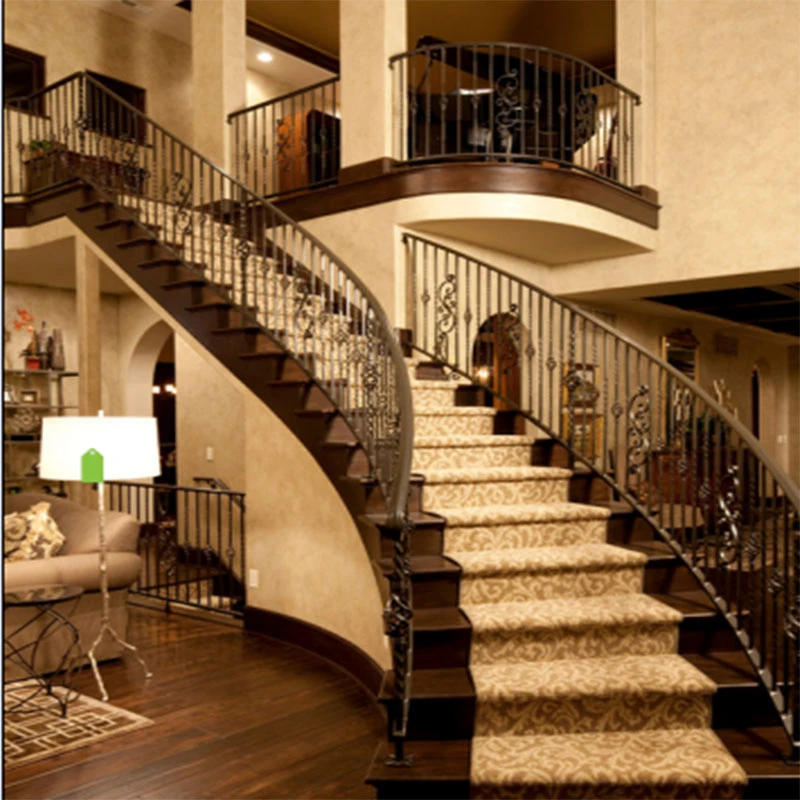
Feb . 13, 2025 21:33
Back to list
chain link fence hinges
When it comes to securing your property with a chain link fence, the choice of hinges can make a significant difference in both functionality and longevity. Chain link fence hinges are not merely components that allow your gate to swing open and closed; they are crucial for ensuring that the gate operates smoothly and remains secure over time. Investing in the right hinges can save time, money, and ensure the durability of the fence structure.
Stainless steel is another exemplary choice, especially for those who prioritize a low-maintenance solution. Although more expensive, stainless steel offers superior resistance to rust and corrosion, making it ideal for coastal areas. Another option is aluminum, which, while not as strong as steel, is lighter and also resistant to rust. Aluminum hinges can be advantageous in reducing the overall weight of the gate, thus easing the operational strain on the hinge. Trustworthy Installation Techniques Proper installation is as critical as selecting the right hinge. Misalignment or improper mounting can quickly diminish the lifecycle of even the highest quality hinges. It’s recommended that installation be carried out by experienced professionals who understand the nuances of leveling, alignment, and secure fastening. Begin by accurately measuring the gate to ensure the hinges are placed at appropriate heights. The top hinge should bear the majority of the gate's weight, so it is crucial to secure it more robustly, often requiring additional or heavier-duty fasteners. The bottom hinge stabilizes the gate’s movement and should be aligned precisely to avoid undue stress and sagging. Authority through Proven Expertise As a seasoned professional in the chain link fencing industry, I've witnessed numerous cases where incorrect hinge choices or poor installation led to costly repairs and replacements. Ensuring all components are weather-resistant, and regularly checking for wear, can preserve the functionality of your gate. Furthermore, opting for well-known, reliable brands that offer warranties can bring peace of mind regarding the quality and durability of the hinges. In conclusion, although chain link fence hinges may seem like a small aspect of your fencing system, their impact on the gate’s performance is substantial. Prioritizing high-quality materials, selecting appropriate hinge types, and ensuring expert installation are steps that reflect experience, expertise, authority, and trustworthiness in maintaining a lasting and effective chain link fencing solution.


Stainless steel is another exemplary choice, especially for those who prioritize a low-maintenance solution. Although more expensive, stainless steel offers superior resistance to rust and corrosion, making it ideal for coastal areas. Another option is aluminum, which, while not as strong as steel, is lighter and also resistant to rust. Aluminum hinges can be advantageous in reducing the overall weight of the gate, thus easing the operational strain on the hinge. Trustworthy Installation Techniques Proper installation is as critical as selecting the right hinge. Misalignment or improper mounting can quickly diminish the lifecycle of even the highest quality hinges. It’s recommended that installation be carried out by experienced professionals who understand the nuances of leveling, alignment, and secure fastening. Begin by accurately measuring the gate to ensure the hinges are placed at appropriate heights. The top hinge should bear the majority of the gate's weight, so it is crucial to secure it more robustly, often requiring additional or heavier-duty fasteners. The bottom hinge stabilizes the gate’s movement and should be aligned precisely to avoid undue stress and sagging. Authority through Proven Expertise As a seasoned professional in the chain link fencing industry, I've witnessed numerous cases where incorrect hinge choices or poor installation led to costly repairs and replacements. Ensuring all components are weather-resistant, and regularly checking for wear, can preserve the functionality of your gate. Furthermore, opting for well-known, reliable brands that offer warranties can bring peace of mind regarding the quality and durability of the hinges. In conclusion, although chain link fence hinges may seem like a small aspect of your fencing system, their impact on the gate’s performance is substantial. Prioritizing high-quality materials, selecting appropriate hinge types, and ensuring expert installation are steps that reflect experience, expertise, authority, and trustworthiness in maintaining a lasting and effective chain link fencing solution.
Prev:
Next:
Latest news
-
Unique Design Ideas for Wrought Iron Wall DecorNewsJul.21,2025
-
Stainless Steel Pulley for Marine ApplicationsNewsJul.21,2025
-
Safety Features in Industrial Track PulleyNewsJul.21,2025
-
Precision Tolerances for 2 Inch U Groove WheelsNewsJul.21,2025
-
Iron Fence Spears Corrosion Protection MethodsNewsJul.21,2025
-
Iron Decorative Panels for Balcony ScreensNewsJul.21,2025
-
Industrial Applications Requiring Heavy Duty PulleyNewsJul.21,2025












